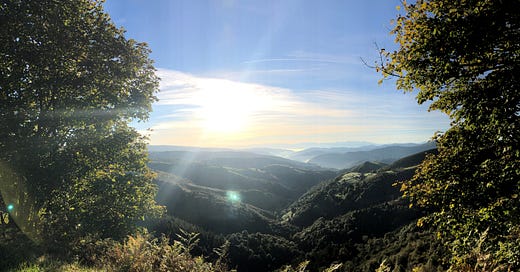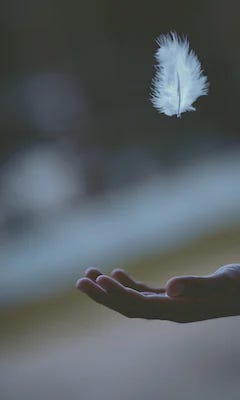I recently read When Breath Becomes Air by Paul Kalanithi and Diary of a Lone Twin by David Loftus. I wanted to write about the lasting impression of these memoirs, not only to draw conclusions about writing and healing, but also to express my gratitude for Kalanithi and Loftus, who persevered through the emotional work of exploring death, trauma, and loss, as well as life and love in their books so that others can one day reap the benefits of their wisdom. I wonder a lot about writing as a tool to work through our own experiences, as well as the value of our writing as a healing tool for others.
If you have not read When Breath Becomes Air about Kalanithi’s work as a neurosurgeon and his life before and after being diagnosed with lung cancer, you must. His story and his writing are spell-binding. The best thing about reading this book is that it feels like a dialogue between Kalanithi and the reader. In the foreword, Abraham Verghese suggests as much, saying, “In the silences between his (Kalanithi’s) words, listen to what you have to say back.” I was doubtful at first, but when I paid closer attention, I found I had many thoughts while reading, and they were clues pointing to my own fears, values, and dreams.
Kalanithi always moved toward what called him throughout his life. This leads him in different directions and, ultimately, toward a compassionate understanding of the people that come to him for medical care. He answers the tough questions: What would I do if I had three months left? Six months? One year? While reading, I thought a lot about what I feel called to do, but when I tried to answer these questions about what I might value if time were more limited, I found it hard to come up with answers that I was happy with—and I think that’s the point.
I mean, I think Kalanithi wanted readers to acknowledge that our time is limited, that it might be much more limited than we believe, and that we can choose to think deliberately about what will bring beauty, purpose, and meaning to our lives and also act on it. Kalanithi knew he could accomplish what he chose to do; his only obstacle was time.
Even though it’s difficult to choose a path or a project and pursue it before we know whether we will succeed or fail, it’s impossible to be certain of the outcome before we begin. I think Kalanithi would advise us to spend some time considering our options to find out what we feel called to do and then to move out of thinking and into action.
In his memoir Diary of a Lone Twin, David Loftus writes about the loss of his identical twin brother John, who was recovering from a brain tumour when he contracted meningitis. In the hospital, John received a fatal dose of antibiotic, and died soon after. David describes how he felt called to write his story:
The desire to write something has been with me for many years fueled by a deep sense of injustice surrounding the nature of Johnny’s death, alongside a festering guilt around the events that led to it. Plus a feeling that this has to be confronted and faced.
Loftus’s story is beautiful and terrible; I cried while reading most of it. As a fellow second-born identical lone twin, I felt some old pain start to dislodge from my heart. Loftus’s brave attention to the truth of every situation, whether it evokes his loneliness, love, guilt, or anger, is admirable. I’m thankful to Loftus for facing all the parts of this story, as well as the fact of missing pieces, and for writing about all of it, so that when I really needed it, it was available for me.
There are missing pieces in all our stories. Things we’ll never know or never understand fully. We’re like archivists, or maybe archaeologists, bent over the dust of things left behind, uncovering an artifact piece by piece and seeing our own story reflected in it. Maybe no one gets to see the whole picture, no matter how much work we do.
Kalanithi says although we can strive toward the truth, it is an impossible task. He says,
Human knowledge is never contained in one person. It grows from the relationships we create between each other and the world, and still is never complete. And truth comes somewhere above them all.
Maybe the point is not to struggle for complete understanding of ourselves and our place in the world but to pursue understanding with forgiveness for our singular point of view. What we create is our legacy and may mean a lot to some one some day, as these two stories mean to me.
I say, go write your story, the one only you can write. Write it for you, write it for the world.
What do you think is the value of leaving something behind for others after you’re gone? Do you feel it’s important to dedicate some of our time here on Earth to adding to the ongoing conversation of human knowledge?






So beautifully said. I’m sorry that you lost your twin, and what a gift to find solace in someone else’s words. I read when breath becomes air a few years ago and agree with everything you said. Such a beautiful book. I don’t know if it was in the book or a podcast about it, but I’ll never forget the conversation with his wife around having a child. She asked “but what if we get pregnant and then you know you only have a short time with our baby” and he said something like “wouldn’t it be wonderful if we did” 💔
Beautifully written Cassandra. There is so much more I would love to know about you and how you feel. The losses we have all experienced have taken a toll and left a painful void. Not speaking openly about our feelings with those we love and who can wound us is very difficult. I am inspired by you to make an effort to put those feelings into words. Fear has held me back for far too long. xo